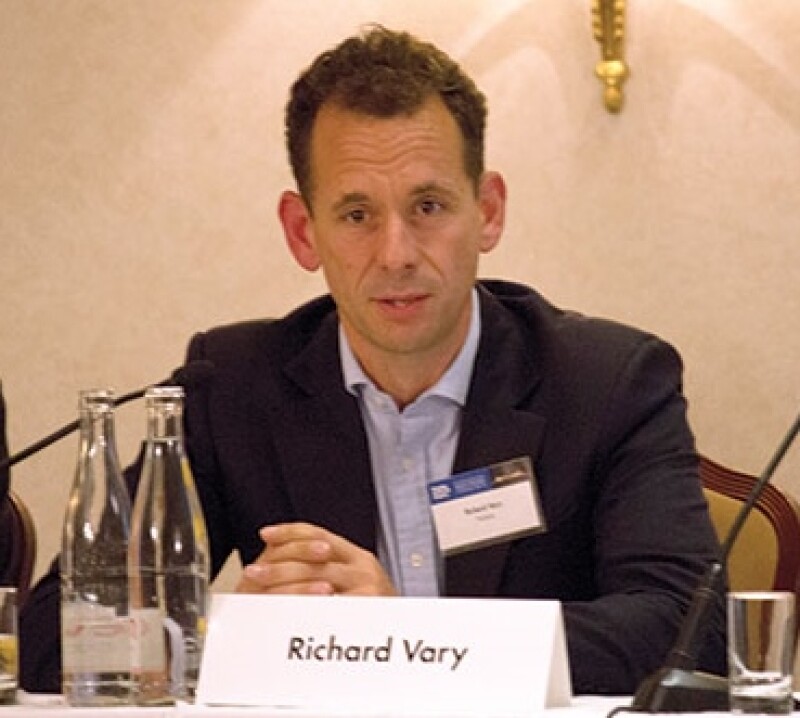
The UK branch of AIPPI held a seminar yesterday evening on “Patents & Standards – FRAND: the story so far” at which Richard Vary of Nokia and Court of Appeal judge Lord Justice Floyd spoke. The seminar was hosted at Allen & Overy’s offices and introduced by Jane Mutimear of Bird & Bird, a member of the AIPPI-UK Council.
It comes after AIPPI’s Special Committee on Patents and Standards published a review of SEP cases last year. And, as Vary stressed, there have indeed been a lot of cases, including at least three relevant decisions in US district courts; the famous Orange Book case in Germany, the pending referral to the CJEU in Huawei v ZTE (in which a judgment is expected imminently); the continuing Vringo and Unwired Planet litigations in the UK; as well as numerous decisions in Brazil, China and India.

The two speakers discussed some of the complex issues raised by these disputes. Vary focused on whether and under what circumstances injunctions should be available. While injunctions are not generally available in the US courts post-eBay, he noted that they remain a live issue in many other jurisdictions, and have in fact been granted in several cases.
In fact, argued Vary (left), courts now recognise that most SEP owners want to grant a licence, and there is “a growing acceptance of the willing licensee test”. If he’s right, this puts more pressure on manufacturers (patent licensees) to show that they have responded to requests and are prepared to make reasonable offers. “That reflects the day-to-day reality,” said Vary, who also provided a memorable soundbite: “It’s about hold-out, not hold up.”
In his presentation, Floyd (below right) reviewed the three US cases (Microsoft v Motorola, In re Innovatio and Ericsson v D-Link) where judges have addressed royalty rates for SEPs, and considered how they compared with UK case law (though he added the reasonable caveat that he would not be bound by anything he said were he at any point to have to decide a FRAND case – quite a likely possibility as he is a serving appeal court judge specialising in patents).
Among the tricky questions thrown up are whether it might be sensible and reasonable to decide damages before validity (as Judge Holderman did in Innovatio) with the aim of bringing the parties together. Possibly so, said Floyd, if both parties agree. Then there are questions, addressed in the D-Link case, about the royalty base and the single saleable unit, where the Federal Circuit said that stacking and hold-up must be shown by evidence not merely assertion. That approach, suggested Floyd, could be in line with the UK General Tire case.
The curious thing is that, despite numerous decisions, much analysis and considerable debate about SEPs, we have not yet got definitive answers to many of these questions. In fact, we often seem to get just more questions.

There are several reasons for that. One is the changing nature of the industry: “vertical disaggregation” means some former handset manufacturers (such as Nokia and Ericsson) are now primarily engaged in research and are licensors, while many of the prominent manufacturers (such as Apple, Samsung and numerous Chinese companies) do not own many patents in the relevant standards.
Another reason is the sums at stake. There are now 7.4 billion mobile devices in the world, with the biggest growth coming in developing countries. Companies are taking full advantage of forum-shopping, and all means of appeal, to get the best deal possible.
Finally, anecdotal evidence from lawyers suggests that the courts in many cases are reluctant to take up some of the questions before them, particularly regarding economic issues such as royalty-rate setting.
Given all of this, could we see more ADR of SEP disputes in the future? Arbitration, and possibly also mediation, offers companies the opportunity to resolve international portfolio disputes in a more efficient and flexible way. On the other hand, they lack the discipline imposed by a judge and are often confidential, so the outcome cannot easily be used as leverage with other parties.
In this context, it was notable last night that Vary described Nokia’s recent international arbitration with Samsung, regarding a portfolio licence, as “working very successfully”.
So we may perhaps see more use of arbitration in such cases in future. One to watch will be Nokia’s own mega-deal signed in June 2011 with Apple which, according to some reports, is due to be renewed before the end of 2016.









